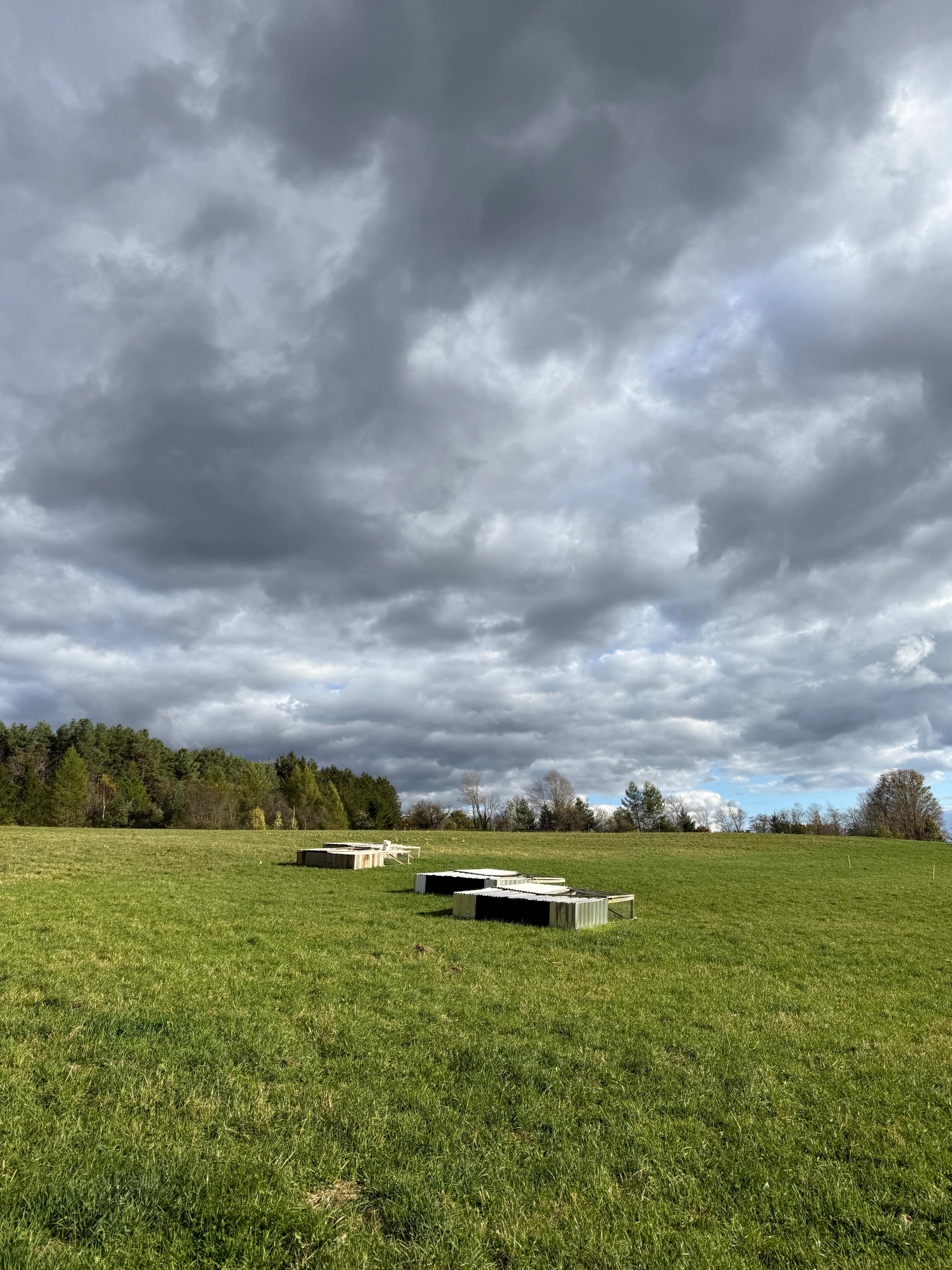What Raising 1,500 Chickens Has Taught Me
What we’ve learned since returning to the farm—and where we’re headed next.
Published On

Photo by Alexis deBoschnek
Each week, cookbook author and recipe developer Alexis deBoschnek offers a peek into life on her Catskills farm—whether it’s tending the land, raising chickens, or cooking with the seasons. This week, she’s reflecting on five years at the farm.
It’s almost the five-year anniversary of when my husband and I moved back to my childhood home in the Catskills. If you had told me then, that fast forward to 2025, we would have raised 1500 chickens, I would have been in total disbelief. While that number feels staggering, it’s actually quite small in the scope of what conventional farms do.
I always chuckle when people ask what we do with the chickens in the winter. Like produce, chicken season happens between spring and fall. With chicken season officially behind us for the year, I’m taking a moment to reflect on how much our lives have changed and what we’ve learned in our return to the farm—especially in the last two since we began raising poultry.

Photo by Alexis deBoschnek

Photo by Alexis deBoschnek
Featured Video
The chickens get organic feed and water in the morning and afternoon to supplement their foraging for bugs, grasses, and forbs. Their shelters are moved to fresh grass at least once a day—but often twice as they get bigger. We’ve learned how to deal with torrential downpours, power outages, and heat waves, all while keeping the chickens as happy and healthy as possible. Raising chickens on pasture with organic feed isn’t the fastest, easiest, or cheapest—but we do think it results in the best chicken we’ve ever had (and our customers agree!).

Photo by Alexis deBoschnek
It’s not actually the raising of the animals that’s the hard part—it’s figuring out how to acquire customers. Setting up at our local farmers market makes sense for about four months of the year, but when the weather turns (as it is right now), customers just aren’t coming in the same droves. We started shipping the chicken a few months ago, and this winter feels like the moment to really lean into developing and expanding that business. Once customers try the chicken, they’re in. But we’ve found it’s hard to communicate why people should buy our chicken if they haven’t been able to taste it or if they don’t know us. I could go on and on about the importance of supporting small farms with regenerative farming practices, but I’ll save that for another day.

Photo by Alexis deBoschnek
Next year we’re going to raise more chickens, though we haven’t decided on a number yet. We’re also going to raise turkeys for Thanksgiving—which is a first—but I think it makes sense for how we envision the growth of the farm. My husband and I have been debating for months about adding another species. I think we should add pigs to the mix, and he’s set on getting sheep. Right now, I’m just grateful for the moments of respite the next few months will bring.
Until next time,
Alexis